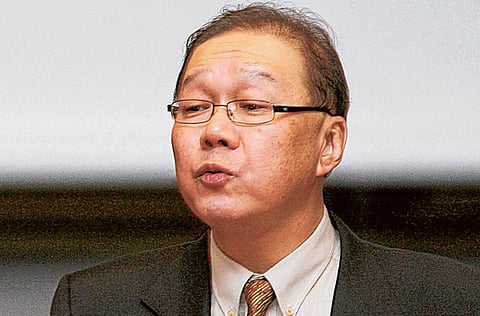The path to becoming a research economy
Singapore agency head shows that UAE's goal of a knowledge-based economy is possible with planning

As Abu Dhabi focuses on becoming a knowledge-based economy, its further growth into a research and technology hub could follow the patterns of a small Far East Asian economy.
This is because of the various similarities between the emirate's economy and that of Singapore, said Dr Low Teck Seng, managing director of Agency for Science, Technology and Research (A*star) in Singapore.
"Singapore is a small nation, just like the emirate of Abu Dhabi, and both of them have a relatively small indigenous population along with a large number of expatriates.
This creates many structural and demographic similarities, and perhaps Abu Dhabi could pursue a similar path to becoming a research and technology centre," Dr Seng told Gulf News.
Dr Seng presented his ideas last week to an audience of academics and education officials at the first of the Eminent Scholar series of lectures organised by the Abu Dhabi Education Council.
Speaking to Gulf News on the sidelines, Dr Seng said one of the major differences between the two economies was Abu Dhabi's endowment of natural resources, namely oil.
"Still, like Singapore, it has a relative young history in research and development," Dr Song added.
Singapore gained independence from Malaysia only in 1965, six years before the UAE federation was created.
The Singapore example
Dr Seng explained that his native land began its journey to becoming a knowledge-based economy only in 1991. According to him, the reason why Singapore had been able to spend almost one per cent of its gross domestic product (GDP) in 2010 was because it had a plan.
"In Singapore, everything follows a plan. Some people may think this is a rigid way of doing things, but we have limited resources and we want to make the best use of them. So we ensure that we receive a return on every dollar we spend on research," Dr Seng added.
The government of Singapore therefore established organisations to oversee research. A*star, for example, oversees 40 per cent of national research and ensures that it is industry-relevant.
The Singapore government also decided that instead of going to universities, research and development funds would first be allocated to industrial research, which included the development of new electronic products, precision engineering and data storage technologies.
"Now that we have transitioned from being an industrial nation to a knowledge based economy, that itself transitioned into a research-centred economy, our government is allocating funds to biomedical research that will only provide returns in the long run," Dr Seng added.



![Social media claims of cancellations dismissed; official updates to be shared through authorised channels. [Illustrative image]](http://media.assettype.com/gulfnews%2F2025-11-15%2Fx2mp12df%2Fexam.jpg?w=320&auto=format%2Ccompress&fit=max)